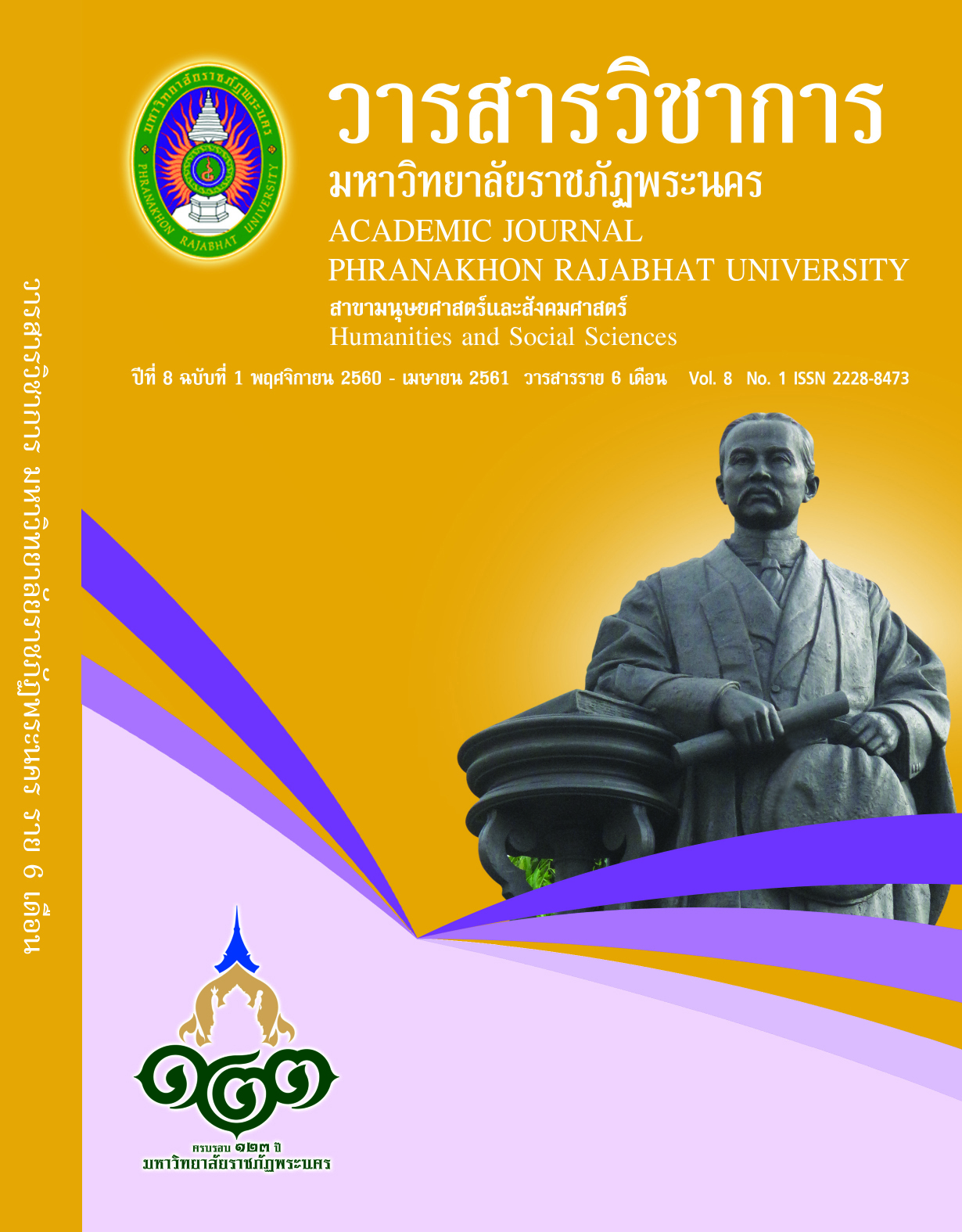Servant-model Leadership Relative to Hotel Organizations in Rayong Province
Keywords:
Servant-model Leadership, Organizations RelationshipAbstract
The purposes of this research were 1) Study factors of servant leadership, factors of participation, factors of satisfaction and factors of relationship to organization base on hotel business in Rayong Province 2) Study correlation structure between servant leadership and factors of participation to organization base on hotel business in Rayong Province 3) Study the correlation structure between factors of participation and satisfaction to organization base on hotel business in Rayong Province 4) Study the correlation structure between factors of participation and factors of relationship to organization base on hotel business in Rayong Province, and 5) Establish a Model of correlation among servant leadership, participation, satisfaction and relationship to organization base on hotel business in Rayong Province. Sample of target group of 252 persons was used to collect data by questionnaire rating scale. The statistics used for data analysis were percentage, average and standard deviation.
The research found that:
- Servant leadership that correlated to hotel organization in Rayong Province has three factors which are participation, satisfaction and relationship to organization.
- Servant leadership and participation to organization has positive correlation statistically significant (p <.01), with a correlation coefficient of Pearson at .578.
- Participation and satisfaction to organization has positive correlation statistically significant (p <.01), with a correlation coefficient of Pearson at .655.
- Participation and relationship to organization has positive correlation statistically significant (p <.01), with a correlation coefficient of Pearson at .616.
References
clarity Through Specificity”. World Development.
Covey, S. R. (2008). The 7 habits of highly effective people: Restoring the character ethic. New York: Free Press.
Jones, D. (2012). “Does servant leadership lead to greater customer focus and employee satisfaction?,”
in Business Studies Journal. 4(2), 21-36
Komal Bhati, Samina Nawab and AishaAkbaret. (2011). Effect of Direct Participation on Organizational Commitment” international Journal of Business and Social Science, 2(9) [Special Issue -May]
Ku-Jun Lin and Yen-Lin Huang. (2012). Employee Participation Trust and Affective Commitment. In Cambridge Business & Economics Conference. 3(1).
Larry C. Spears. (2010). Character and Servant Leadership: Ten Characteristics of Effective, Caring Leaders. The Journal of Virtues & Leadership, 1 (1), 25-30.
Natalie J. Allen and John P. Meyer. (1990). The measurement and antecedents of affective, continuance and normative commitment to the organization. Journal of Occupational Psychology, 63(1), 1–96
Tzu-Shian Han, Hsu-Hsin Chiang and Aihwa Chang ( 2010). Employee participation in decision making, psychological ownership and knowledge sharing : mediating role of organizational commitment in Taiwanese high-tech organizations, in The International Journal of Human Resource Management, 21(12), 2218-2233.
Wit mekavarakul. (2553). The Job Compensation Satisfaction Influence and Organization Commitment in Equality Perspective of Hotel Employee in Eastern Region, Thailand.
Master’s Degree in Economics, Ramkhamhaeng University.
Downloads
Published
How to Cite
Issue
Section
License
"บทความวิชาการในวารสารฉบับนี้ ถือเป็นความรับผิดชอบของผู้เขียนเท่านั้น"
สงวนลิขสิทธิ์ตามพระราชบัญญัติลิขสิทธิ์




